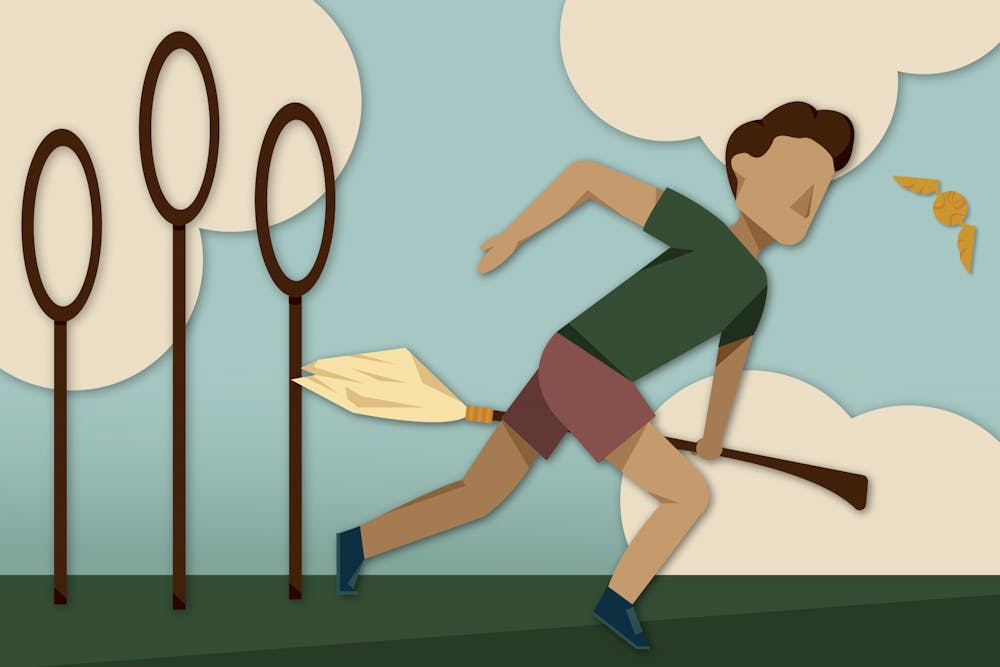The Midlands played host this month to the 2023 US Quadball South Region Championship at Saluda Shoals Park and Irmo High School with club and collegiate teams from around the region battling for a place in the US Quadball Cup.
Quadball is based on Quidditch, a fictional sport from the famous novel and film franchise, "Harry Potter." In the summer of 2022, the league opted to rename the sport to Quadball in an effort to distance themselves from the series' controversial author, J. K. Rowling, but the sport has also grown beyond its literary origins.
“What’s interesting about the sport is that a number of people came in through 'Harry Potter,' I would say, and eventually it transitioned to people who want to do a micro-sport,” Peter Lawrence, a keeper with the Bosnyan Bearsharks club.
The last tournament held in the Columbia area was the 2017 US Quadball South Regional Championship. The city also hosted the US Quadball Cup in 2016.
“(We are) so excited to host US Quadball again this weekend here in Columbia,” Hannah Kay, sports development manager for Experience Columbia SC Sports, said in a press release before the event. “We’ve had a wonderful ongoing relationship with their organization since before we hosted their world championship event in 2016.”
Colleges in attendance included Florida, Florida State, Florida Gulf Coast and UNC. At the club level, participants traveled from Boston, Orlando and more to Columbia with a spot in the US Quadball Cup, which will be held in Pennsylvania later this year, on the line.
The game involves seven players per team, consisting of one keeper, two beaters, three chasers and one seeker. The goal is for the chasers to throw a quadball, which is similar to a volleyball, into one of three elevated hoops to score 10 points.
The beaters and the keeper act as the defensive players, with the keeper defending the goals and the beaters throwing dodgeballs at the opposing team. If a player is hit by a dodgeball, they must drop any balls in their possession and run back to touch their center goal to re-enter the match.
After 20 minutes, the seekers come into play. The seekers' job is to pull a flag from a neutral player called a “flag runner.” Once the flag is legally obtained, the player’s team scores 25 points, and the game automatically ends.
Quadball is a full-contact sport, and players are often bodied and wrestled to the ground by opposing players trying to gain possession of the quadball.
“Other athletes and a lot of people that (are) like ‘Oh, this is just a dumb game from a book.’ They don’t understand that it's a very physical sport,” Tom “Chiddy” Powers, general manager of the Philadelphia Freedom club, said. “It’s basically rugby and dodgeball with a dash of wrestling mixed in there. There’s a lot of mechanics to it that if an actual athlete took the time to play, they’d be like, ‘Wow, this is not as easy as I thought it was.’”
The sport is also mixed-gender, with US Quadball's Title 9 3/4 saying teams "may not have more than four players who identify as the same gender in play at any point during the game." This makes the game accessible to all who wish to play it and strengthens the community around the sport, according to club player Mac Romine.
“I have made some of my best friends playing this game,” Romine, a multi-position player for the Red Pandas club, said. “People who I will have in my life, ideally, for decades and decades beyond my quadball career.”
While it's a niche sport, the community around quadball has flourished. Players and teams hope that the sport continues to grow and that people recognize the sport for the athleticism and determination it requires.
“I would say to the public that there are a lot of preconceived notions of quadball and quidditch that don’t necessarily hold true,” Jacob Dowler, a UNC beater and captain, said. “Come out to a game, watch a game online, ... and I think people will find that it’s a really entertaining sport to watch. It’s high-action, high-speed, lots of contact — it's like all of the ‘American’ things.”

